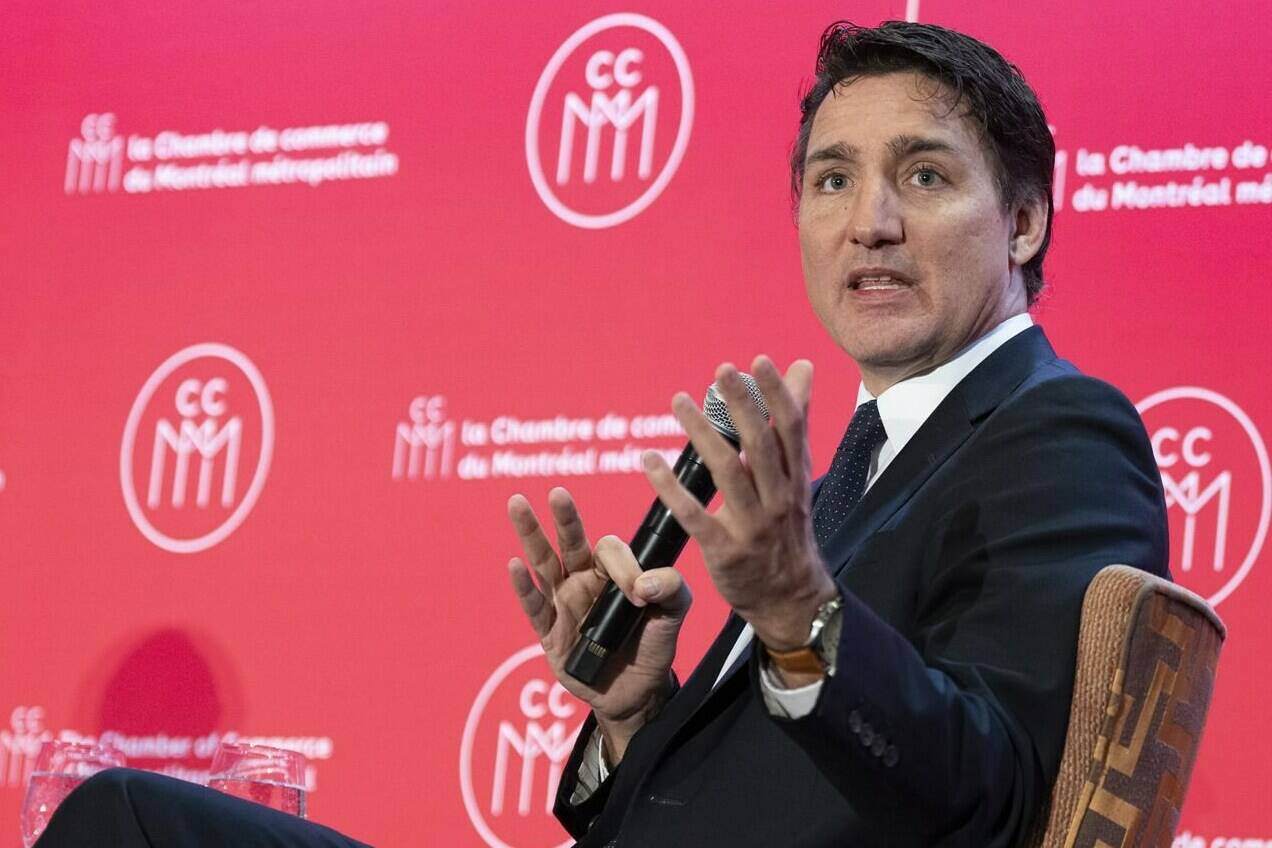Voters in the United States will likely face a choice in the November presidential election between optimism for the future, or nostalgia for a past that never existed, Prime Minister Justin Trudeau said Tuesday.
And while a second Donald Trump presidency “won’t be easy,” Trudeau told a Montreal business audience, the federal government is prepared for that possibility.
Trudeau made the comments a day after Trump handily won the Iowa Republican caucuses, with about 51 per cent of the vote, a result that gave the former president an early lead for the Republican nomination ahead of the country’s November election.
“Do they want to be a nation that is optimistic and committed to the future? Or will they choose a step backwards, nostalgia for a time that never existed, a populism that reflects a lot the anxiety and fury that people are going through without necessarily offering solutions?” Trudeau said in response to a question at a breakfast event hosted by the Chamber of Commerce of Metropolitan Montreal.
There are many issues on which Trudeau said he disagrees with the one-term former U.S. president, who was elected in 2016 and defeated four years later by Joe Biden. But the prime minister said he was able to successfully defend Canada’s interests through Trump’s mandate, including during the negotiation of the United States–Mexico–Canada agreement and a dispute over Canada’s aluminum exports to the U.S.
“It was not easy the first time, I’ll tell you that and if there’s a second time, it won’t be easy either,” Trudeau said.
But the prime minister said working with the U.S. always comes with challenges and that there were trade disputes during the Barack Obama and Biden administrations related to things like softwood lumber and electric vehicles.
“It’s always a big challenge to work with any American president, even those like Barack and Joe, with whom I have a lot in common,” Trudeau said.
The Republican nomination battle officially became a three-horse race Tuesday when last-place challenger Asa Hutchinson, the former Arkansas governor, formally suspended his moribund campaign. That followed the withdrawal Monday of Trump-adjacent, distant-fourth finisher Vivek Ramaswamy, the biotech entrepreneur whose bid included a straight-faced proposal to build a wall along the Canada-U.S. border.
The win for Trump and his “Make America Great Again” political movement in Iowa is largely inconsequential in the grander battle for the presidential nomination, but incontrovertible proof of his stranglehold on the Republican party.
Trudeau said the choice facing Americans is similar to one facing voters in Europe and other parts of the world that are experiencing democratic backsliding and waning support for democracy. Canada isn’t immune from those trends, Trudeau said, casting himself as a defender of optimism and stability, in opposition to anger, fear and conspiracy theories.
“In two years here in Canada, we’ll have a similar choice,” Trudeau said. “Do we move forward, to defend democracy, our principles, do we continue to fight climate change, defend individual rights, defend minorities, or do we go backwards because we’re too angry about everything that’s going on in the world around us?”
The next federal election must take place on or before Oct. 20, 2025. Recent polls have suggested Pierre Poilievre’s Conservatives would win a majority government if the vote was held now.
Trudeau did not take questions from reporters after speaking at the chamber of commerce event.

